
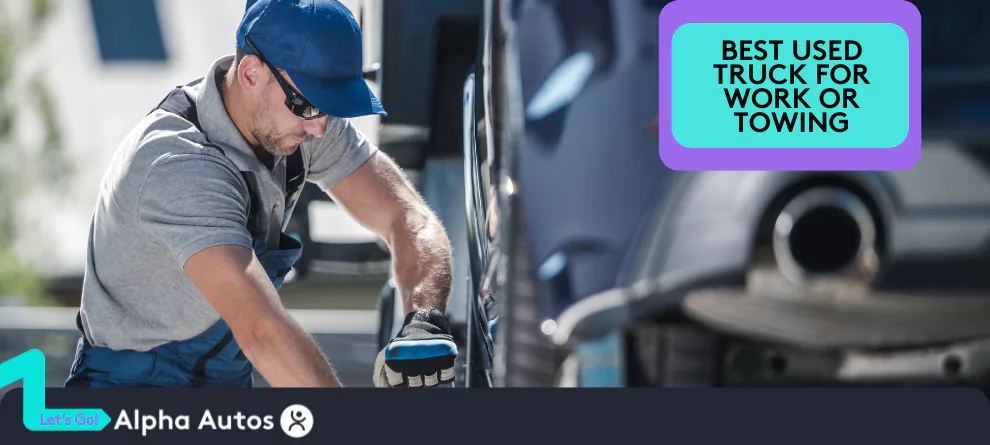
Finding the Perfect Used Truck for Work or Towing
When the job demands heavy lifting or significant towing, the right truck isn’t just a vehicle – it’s an essential tool. Exploring the market for used cars for sale, particularly trucks, can offer substantial cost savings without compromising on the power and features you need for demanding tasks. Selecting a used truck for work or towing requires careful consideration of its capabilities to ensure it can handle the tasks at hand safely and efficiently.
This article will guide you through the key considerations when evaluating used trucks for work and towing, focusing on critical factors such as towing capacity, payload capacity, available engine options, proven reliability, and practical work-oriented features. Our aim is to help individuals and businesses make an informed decision and find the best used truck that can confidently meet their specific and demanding requirements.
Top Contenders in the Used Truck Market:
When exploring the used cars for sale market for a truck built to handle tough jobs and significant towing, these models consistently prove their worth. Each offers a unique blend of power, capability, and features designed to tackle demanding tasks. Here’s a closer look at some of the top contenders:
1. Ford F-Series (F-150, F-250, F-350): A Legacy of Capability
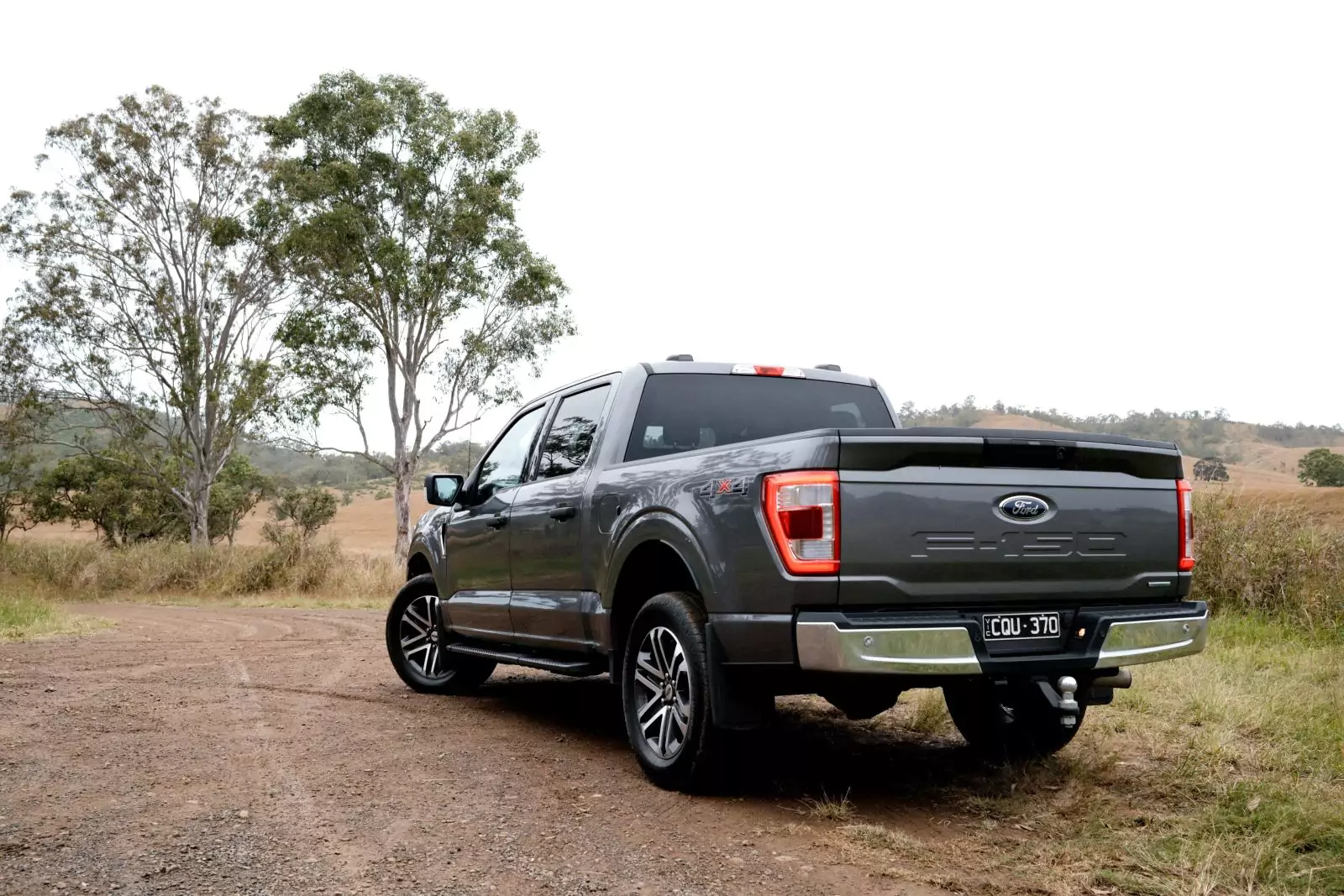
-
The Ford F-Series, including the versatile F-150 and the heavy-duty F-250 and F-350 Super Duty models, offers a long history of proven performance and a wide range of configurations to meet diverse work and towing needs.
- F-150:
- Towing Capacity: Varies significantly by engine and configuration (EcoBoost engines are popular for towing). Look for models with the Max Trailer Tow Package for highest ratings.
- Payload Capacity: Dependent on cab style, bed length, and engine. Higher trim levels can sometimes have lower payload.
- Engine Options: Wide range including V6, V8, and turbocharged options. Diesel engines available in some generations.
- Work Features: Available with features like integrated bed steps, tailgate work surfaces, and Pro Power Onboard (generator).
- F-250/F-350 (Super Duty):
- Towing Capacity: Significantly higher than F-150, especially with diesel engines. Gooseneck and fifth-wheel towing capabilities are a major strength.
- Payload Capacity: Built for heavy hauling. Look for single-rear-wheel (SRW) vs. dual-rear-wheel (DRW) configurations depending on needs.
- Engine Options: Powerful gasoline and diesel V8 engines designed for heavy work.
- Work Features: Often equipped with heavy-duty suspension, integrated towing hitches, and available upfitter switches for auxiliary equipment.
- F-150:
2. Chevrolet Silverado/GMC Sierra (1500, 2500HD, 3500HD)
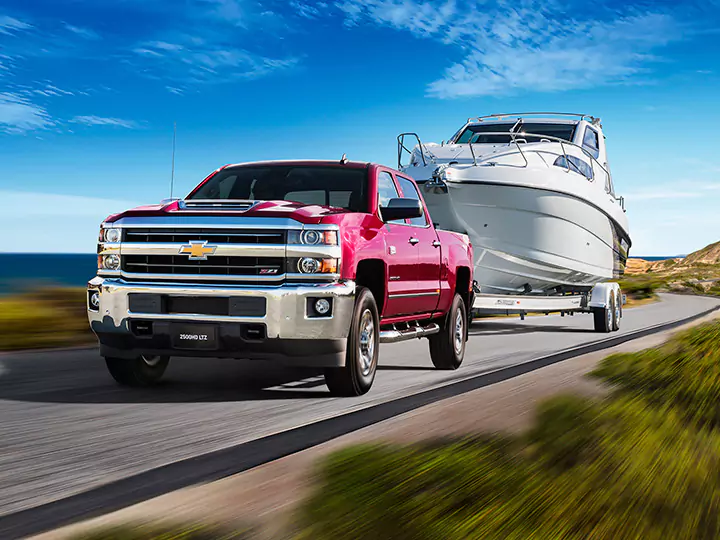
-
Rugged Performance and Versatility. The Chevrolet Silverado and its GMC Sierra sibling offer a robust lineup of trucks, from the capable light-duty 1500 to the heavy-duty 2500HD and 3500HD, all designed to deliver dependable performance for work and towing.
- 1500:
- Towing Capacity: Similar to F-150, varies by engine and package (e.g., Max Trailering Package).
- Payload Capacity: Dependent on configuration. Consider the payload capacity sticker on the driver’s side doorjamb.
- Engine Options: Range of V6 and V8 gasoline engines, with diesel options available in some years.
- Work Features: Available with features like the Multi-Flex Tailgate (Sierra), integrated bed steps, and various cargo management systems.
- 2500HD/3500HD:
- Towing Capacity: Excellent for heavy loads, especially with Duramax diesel engines. Offers strong conventional, gooseneck, and fifth-wheel towing.
- Payload Capacity: High, designed for substantial hauling. DRW options on 3500HD increase capacity.
- Engine Options: Powerful gasoline and Duramax diesel V8 engines built for demanding tasks.
- Work Features: Often includes heavy-duty suspension, robust towing equipment, and available PTO (Power Take-Off) for commercial applications.
- 1500:
3. Ram Trucks (1500, 2500, 3500): Comfort Meets Capability
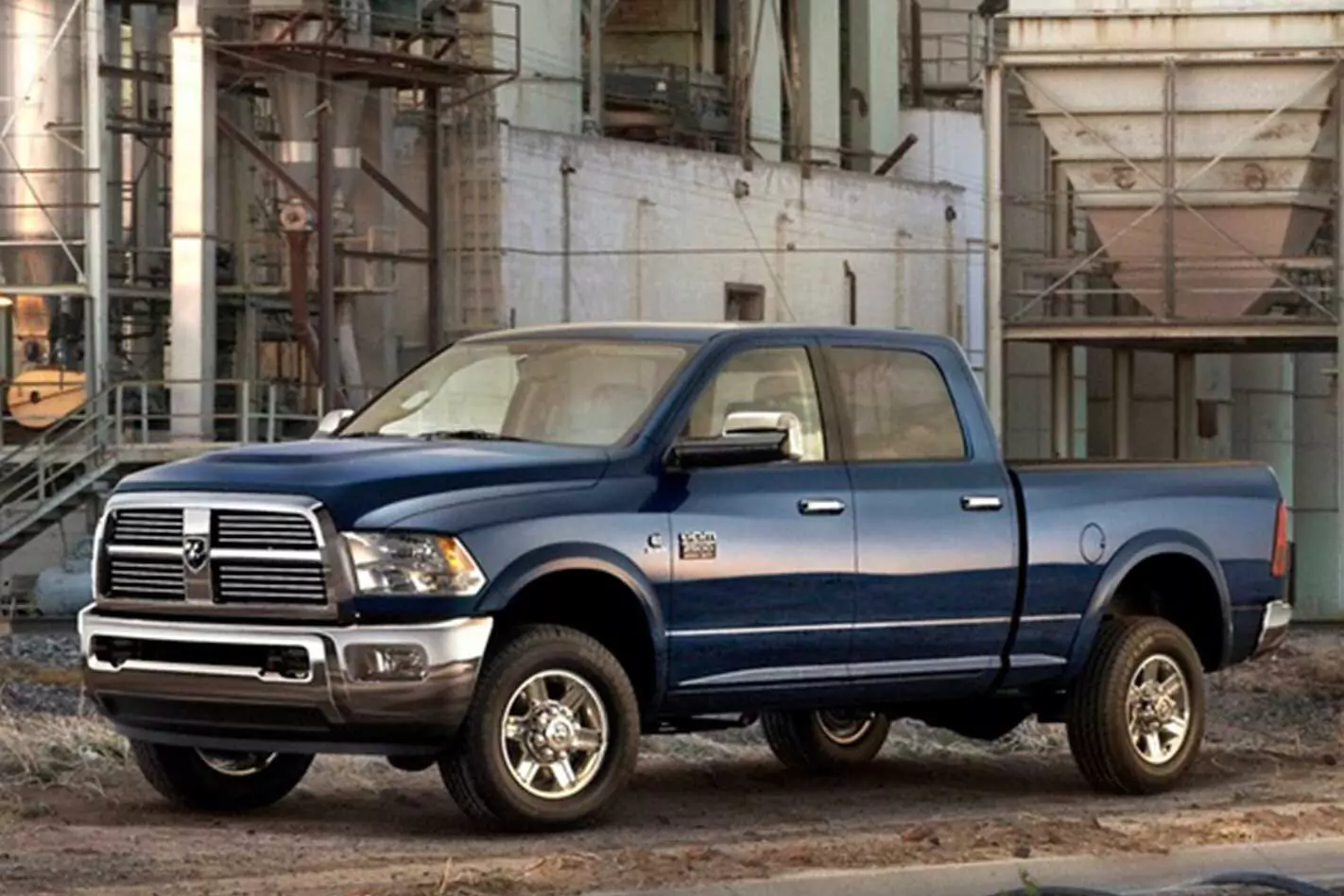
-
Ram trucks have carved a niche by offering a compelling combination of strong work and towing capabilities alongside comfortable and well-appointed interiors, making them a popular choice for both job sites and personal use.
- 1500:
- Towing Capacity: Competitive with other light-duty trucks, particularly with the Hemi V8 and available towing packages.
- Payload Capacity: Varies by configuration. The Ram 1500 often prioritizes ride comfort, which can slightly impact maximum payload compared to rivals in some trims.
- Engine Options: Includes V6, Hemi V8, and EcoDiesel V6 engines.
- Work Features: Available with RamBox cargo management system, multifunction tailgate, and comfortable, well-equipped interiors that can double as mobile workspaces.
- 2500/3500:
- Towing Capacity: Impressive, especially with the Cummins diesel engine. Strong capabilities for all types of towing.
- Payload Capacity: High, designed for heavy hauling. DRW options on 3500 offer maximum capacity.
- Engine Options: Powerful gasoline and Cummins diesel inline-six engines known for their torque and durability.
- Work Features: Often includes heavy-duty suspension, robust towing hardware, and comfortable, functional interiors.
- 1500:
4. Toyota Tundra: Renowned for Reliability
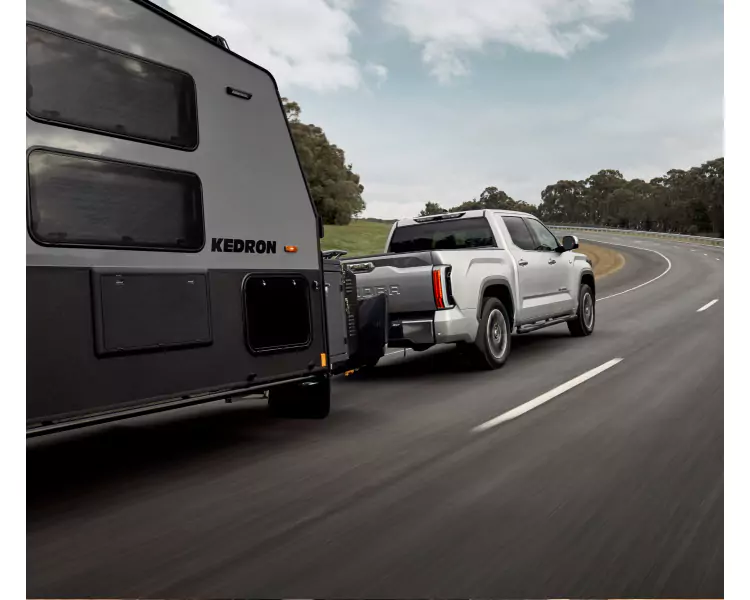
-
The Toyota Tundra stands out for its exceptional reliability and strong resale value, offering a dependable option for those who need a capable truck for work and towing without sacrificing longevity.
- Towing Capacity: Generally capable, but typically slightly lower than the top-tier domestic trucks. Later generations have improved ratings.
- Payload Capacity: Can be a limiting factor in some configurations. Check the payload sticker.
- Engine Options: Primarily V8 gasoline engines known for their reliability.
- Work Features: Offers durable construction and available features like bed rails and tie-down cleats. Focus is often more on reliability and longevity than cutting-edge work-specific gadgets.
5. Nissan Titan/Titan XD: A Solid Alternative
-
The Nissan Titan and the more robust Titan XD provide viable alternatives in the full-size truck market, offering a blend of capability, features, and value for those seeking a dependable workhorse.
- Titan:
- Towing Capacity: Competitive in the light-duty segment with its standard V8 engine.
- Payload Capacity: Typically in line with other light-duty trucks.
- Engine Options: Primarily a V8 gasoline engine.
- Work Features: Offers features like Utili-track bed channel system and in-bed storage boxes.
- Titan XD:
- Towing Capacity: Higher than the standard Titan, bridges the gap to heavy-duty trucks. Cummins diesel engine option provides significant towing power.
- Payload Capacity: Higher than the standard Titan, offering more capability for hauling.
- Engine Options: V8 gasoline and Cummins diesel engines.
- Work Features: Built with a stronger frame and suspension components for increased capability.
- Titan:
When evaluating used cars for sale in the truck segment, always dig into the specific configuration, engine, and any towing packages the vehicle may have to ensure it meets your particular work and towing demands.
Key Features to Prioritize in a Work and Towing Truck:
When navigating the used cars for sale market for a truck that can handle demanding work and heavy towing, certain features are critical for performance, safety, and efficiency. Here’s a breakdown of the key areas to focus on:
-
Towing Capacity: This is a primary consideration for any work-oriented truck.
- Understanding Gross Combined Weight Rating (GCWR) and Gross Vehicle Weight Rating (GVWR): GCWR is the maximum allowable weight of the truck and its loaded trailer, while GVWR is the maximum allowable weight of the truck itself, including passengers, cargo, and fuel. These ratings are crucial for safe towing.
- Matching Towing Needs with the Truck’s Capability: Carefully assess the weight of the trailers you’ll be towing, including the trailer itself and its typical load. Ensure the truck’s rated towing capacity meets or exceeds your requirements, with a safety margin. Consider the trailer’s braking system and ensure the truck is equipped to handle it (e.g., electric brakes).
- Considering Hitch Types: Different trailers require different hitch types. Conventional ball hitches are common for lighter loads, while gooseneck and fifth-wheel hitches offer higher weight capacities and better stability for heavier trailers. Ensure the used truck has the appropriate hitch setup or the ability to install one.
-
Payload Capacity: The truck’s ability to carry weight is just as important as what it can tow.
- Understanding the Truck’s Ability to Carry Weight in the Bed and Cab: Payload capacity refers to the maximum weight the truck can carry in its bed and cab, including passengers, tools, equipment, and cargo. Overloading can be dangerous and damage the vehicle.
- Considering the Weight of Tools, Equipment, and Passengers: Estimate the typical weight you’ll be carrying in the truck bed and cab for your work tasks. Ensure the truck’s payload rating is sufficient for your needs.
-
Engine Options: The engine is the heart of a work truck.
- Gasoline vs. Diesel Engines:
- Gasoline: Generally offer lower upfront cost and can be sufficient for lighter-duty work and occasional towing. Horsepower figures are often higher.
- Diesel: Typically provide significantly more torque at lower RPMs, which is crucial for heavy towing and hauling. They often offer better fuel efficiency when towing heavy loads and tend to have a longer lifespan.
- Understanding Engine Displacement and Horsepower/Torque Figures: Higher displacement engines generally produce more power and torque. Pay close attention to torque figures, especially for towing, as this is the rotational force that gets heavy loads moving. Horsepower is important for maintaining speed, especially uphill.
- Gasoline vs. Diesel Engines:
-
Reliability and Durability: A work truck needs to be dependable day in and day out.
- Strong Reliability Ratings and Owner Reviews for Work-Related Use: Research the long-term reliability of specific truck models and engine options, focusing on feedback from owners who use their trucks for similar work and towing tasks.
- Heavy-Duty Components: Look for trucks equipped with heavy-duty suspension, axles, and brakes, as these components are designed to withstand the stresses of regular work and towing.
- Longevity and Potential for High Mileage: Diesel engines, in particular, are often known for their potential to reach high mileage with proper maintenance. Consider the truck’s age and mileage in relation to its expected lifespan and your intended use.
-
Work-Oriented Features: These features can significantly enhance the truck’s practicality for work.
- Bed Size and Configuration: Choose a bed length that suits the type of cargo you’ll be carrying. Consider features like bed liners, tie-down points, and cargo management systems.
- Towing Packages and Integrated Trailer Brake Controllers: A factory towing package often includes essential features like a hitch receiver, wiring harness, transmission cooler, and an integrated trailer brake controller, which is crucial for safely controlling trailers with electric brakes.
- 4×4 Capability: If your work environment involves off-road conditions, uneven terrain, or slippery surfaces, four-wheel drive (4×4) is an essential feature for traction and maneuverability.
- Storage Solutions and Organizational Features: Look for trucks with ample interior storage, such as large consoles, under-seat storage, and available toolboxes or storage compartments in the bed.
- Upfitter Switches: These pre-wired auxiliary switches allow for easy connection and control of aftermarket work equipment like lights, winches, and plows.
By carefully evaluating these key features in the used cars for sale market, you can find a truck that is not only capable of handling your work and towing demands but also reliable and durable enough for the long haul.
Tips for Buying a Used Work or Towing Truck:
Finding the right workhorse in the used cars for sale market requires a focused approach. Keep these tips in mind:
-
Assess Your Specific Needs: Before you start browsing, clearly define the types of work you’ll be doing and the weights you’ll typically be towing. Understanding your specific requirements for towing capacity, payload, and work-related features will help you narrow down your options and avoid purchasing a truck that’s either under-equipped or overkill.
-
Thorough Inspection: Used work trucks often have a history of demanding use. Pay close attention to signs of heavy wear and tear during your inspection. Specifically examine the suspension components (shocks, springs, bushings), brakes (rotors, pads, lines), and the drivetrain (transmission, axles, differentials) for leaks, damage, or excessive wear.
-
Check Maintenance Records: Evidence of regular and thorough maintenance is crucial for a work truck. Look for detailed service records, especially for oil changes, transmission fluid flushes, and differential services. Well-maintained trucks are more likely to be reliable in the long run.
-
Test Drive While Loaded (If Possible): If the seller allows and it’s safe to do so, try to test drive the truck while towing a load similar to what you’ll be hauling or with a significant weight in the bed. This will give you a much better sense of the engine’s power, the transmission’s performance under stress, and the effectiveness of the brakes and suspension.
-
Consider Higher Mileage Diesel Options: For those who need serious towing power and plan on putting in a lot of miles, a well-maintained diesel truck with higher mileage can be a viable option. Diesel engines are often built for longevity and can provide excellent torque for heavy loads, even with significant kilometres on the odometer. However, ensure a thorough inspection and maintenance history check.
-
Inspect Towing Components: Carefully examine all towing-related components. Check the hitch receiver for any signs of damage or corrosion. Inspect the wiring harness for the trailer lights and brakes to ensure it’s intact and functioning correctly. If the truck has an integrated trailer brake controller, test its functionality with a trailer if possible.
Conclusion: Finding the Right Used Truck to Get the Job Done
Ultimately, securing the ideal used truck for your work and towing demands boils down to a careful assessment of your specific tasks and matching those needs with the right capabilities. Prioritising factors like towing and payload capacity, engine type, reliability, and essential work-oriented features will ensure you acquire a vehicle that can confidently handle your toughest jobs. Opting for a capable used truck offers a significant advantage, allowing you to access the power and dependability you require without the premium price tag of a new model. When you’re ready to explore a diverse inventory of pre-owned trucks built to tackle any challenge, visit Alpha Autos – where you’ll find the right vehicle to power your next chapter of work and adventure.
Categories
- Auto Detailing (2)
- Car Buying Guide (18)
- Car Financing (1)
- Car Maintenance (2)
- Car News (2)
- Used Cars For Sale (3)
Recent Posts
Related posts


Best Financing Options for Buying a Used Car

How to Check a Used Car’s History Before You Buy





